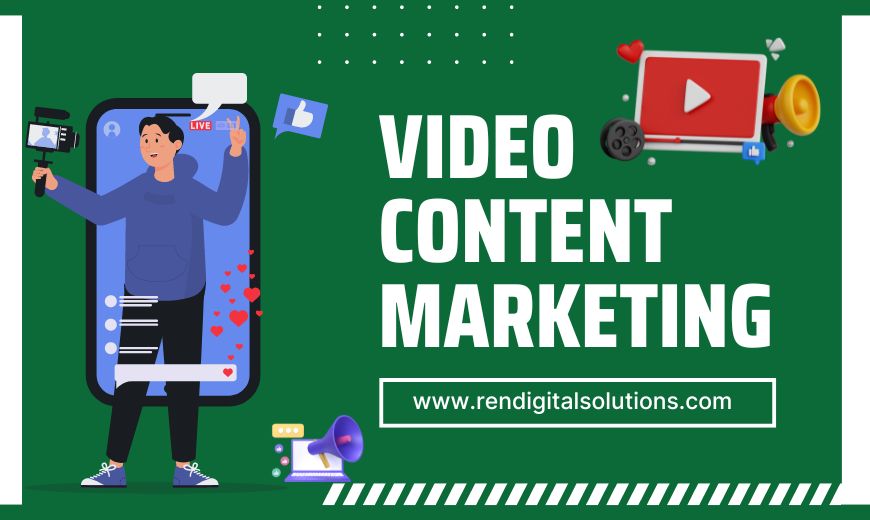
In today’s digital landscape, where attention spans are shorter than ever, video content has emerged as a powerful medium for engagement and storytelling. As businesses strive to capture their audience’s attention, integrating artificial intelligence (AI) into video content marketing strategies is becoming essential. In this blog, we’ll explore how video content AI is transforming the way brands create, distribute, and analyze video content, the different types of video content gaining traction, and the implications of video content warnings for marketers.
The Rise of Video Content Marketing
Video content marketing is no longer just an option; it’s a necessity. According to recent statistics, video content can increase conversion rates by up to 80% and boost engagement on social media. Platforms like YouTube, Instagram, and Facebook have proven that well-crafted video content can go viral, reaching millions in mere hours.
However, creating high-quality video content consistently is a challenge many marketers face. This is where video content AI comes into play. AI technologies can streamline the video creation process, from scriptwriting to editing, making it easier for brands to produce engaging content at scale.
How Video Content AI Works
- Automated Video Creation: AI tools can generate videos using existing assets, such as images, text, and audio. For instance, platforms like Lumen5 and InVideo leverage AI to convert blog posts into engaging videos, allowing marketers to repurpose content effectively. By analyzing the text, these tools identify key phrases and suggest visuals that align with the message, drastically reducing production time.
Smart Editing and Production: AI-driven editing software, such as Adobe Premiere Pro’s Sensei feature, helps streamline the editing process. With capabilities like automatic scene detection and audio leveling, marketers can spend less time on technical adjustments and more time focusing on storytelling. Additionally, AI can analyze past content performance to suggest edits that enhance viewer retention and engagement.
Tailored Video Content: In today’s competitive marketing world, personalization plays a crucial role in capturing audience attention and driving engagement. AI enables brands to create personalized video experiences for their audiences. By analyzing user data, AI can tailor video content to individual preferences, increasing relevance and engagement.
Types of Video Content Revolutionized by AI
As AI technologies advance, various types of video content are emerging. Here are some popular formats being transformed through the use of AI:
- Explainer Videos: Explainer videos are a staple in digital marketing. They simplify complex concepts and products, making them easier for audiences to understand. AI tools can quickly generate explainer videos, incorporating animations and graphics that help convey messages effectively.
Interactive Videos: Interactive videos allow viewers to engage with the content actively. AI can facilitate personalized branching scenarios, where viewers choose their path through the content based on their interests. This not only enhances user experience but also provides valuable data on audience preferences.
Live Streaming and Real-Time Editing: Live streaming has gained immense popularity, particularly during the pandemic. AI can assist in real-time editing during live broadcasts, enhancing the quality of the stream and ensuring a smooth viewing experience. Features like automated camera switching and real-time graphics are made possible with AI technologies.
User-Generated Content (UGC): UGC is an authentic way to engage audiences, as it showcases real experiences with a brand. AI can help brands curate and edit UGC into cohesive video narratives, making it easier to integrate customer stories into marketing campaigns.
The Importance of Video Content Warnings
With the rise of various types of video content, it’s essential to consider the ethical implications, particularly regarding video content warnings. Content that includes sensitive topics or graphic material requires appropriate warnings to ensure viewer safety and comfort.
- Ethical Responsibility: Marketers have a responsibility to ensure their audience’s well-being. Implementing video content warnings is a crucial step in being transparent about the content being presented. This not only builds trust but also demonstrates a brand’s commitment to ethical marketing practices.
Enhancing Viewer Experience: By providing content warnings, brands can enhance viewer experience, allowing audiences to make informed decisions about what they watch. This approach is particularly vital in educational content, where viewers may encounter triggering topics.
Legal Considerations: In some regions, content warnings are not just best practices; they are legal requirements. Marketers must stay informed about regulations surrounding content warnings to avoid potential legal repercussions.
The Future of Video Content Marketing with AI
As we look ahead, the synergy between video content AI and video content marketing is poised to redefine how brands engage with their audiences. Here are some predictions for the future:
- Advanced Analytics: AI will continue to enhance analytics, providing marketers with deeper insights into viewer behavior and preferences. This data-driven approach will allow brands to refine their strategies, creating content that resonates more effectively with their target audiences.
Enhanced Automation: The automation of video content creation and editing will become more sophisticated. Marketers will have access to AI tools that can produce high-quality videos in real-time, enabling them to respond quickly to trends and audience demands.
Greater Personalization: Personalized video content will become even more prevalent as AI technology advances. Brands will be able to create highly targeted campaigns that speak directly to individual consumers, improving engagement and conversion rates.
Innovative Formats: We can expect to see new and innovative video formats emerge as AI technologies evolve. From augmented reality (AR) experiences to AI-generated animations, the possibilities for creativity in video content marketing are endless.
Conclusion
The integration of video content AI into video content marketing is revolutionizing the way brands engage with their audiences. By streamlining production processes, enabling personalized experiences, and facilitating the creation of diverse types of video content, AI is transforming the digital marketing landscape. As marketers embrace these advancements, they must also consider the ethical implications of their content, particularly concerning video content warnings. The future of video content marketing is bright, and those who adapt to these changes will undoubtedly thrive in an increasingly competitive environment.
For more insights on leveraging video content AI in your marketing strategies, explore our resources at REN Digital Solutions. Let’s embrace the future together!
Read Also: What is AI Winter and Its Impact on Digital Marketing Trends



